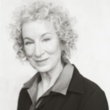Sea of Tranquility
Description
More Details
Mandel, Emily St. John Author
Moore, Dylan Narrator
Morey, Arthur Narrator
Potter, Kirsten Narrator
059346673
9780593466735
9780593321454
9780593552001
Excerpt
Similar Titles From NoveList
Similar Authors From NoveList
Published Reviews
Booklist Review
In 1912, Edwin, the third son of a wealthy British family who is sent into exile for his progressive views, has a transcendent experience in the remote Canadian woods when he is momentarily transported to a futuristic airship terminal and hears a violinist playing. Nearly a hundred years later, Vincent Smith (the heroine in Mandel's previous novel, The Glass Hotel, 2020) has a similar experience as a teen. And several centuries into the future, a resident of a colony on the moon named Gaspery Roberts is sent back through time to investigate these incidents, and discover how and why they happened. Connecting characters across the centuries--including several others from The Glass Hotel, plus a writer, who, not unlike Mandel herself, has written an eerily prescient hit novel about a fictional pandemic just before the onset of a real one--Mandel spins a gripping and beautiful narrative that speaks to how we are all interconnected in great and small ways. With more than a few discoveries related to her previous novels, this will be a delight for longtime Mandel readers; but those new to her work won't find themselves lost by any means, except in the sense that all readers will be subsumed by this gorgeously rendered, deeply intimate, conceptually rich, and affecting tale. HIGH-DEMAND BACKSTORY: Mandel continues to reign as a cutting-edge, best-selling novelist, and the themes of this deeply involving tale promise even more attention and acclaim.
Publisher's Weekly Review
In Mandel's stunning latest, people find themselves inhabiting different places and times, from early 20th-century Canada to a 23rd-century moon colony. Edwin St. Andrew's wealthy British family banishes him to Canada after his unpatriotic opinions disrupt a dinner party. Walking in the dense forest near tiny Caiette, B.C., in 1912, he suddenly hears haunting violin music and a human bustle. In 2020 Brooklyn, avant-garde composer Paul James Smith shapes a composition around a fragmentary video shot by his late half sister Vincent (both characters appeared in Mandel's The Glass Hotel). Its footage of the forest outside Caiette, where Vincent was raised, is abruptly interrupted by a black screen and a collage of sounds including violin notes, a "dim cacophony" reminiscent of a train station, and "a strange kind of whoosh." Author Olive Llewellyn leaves her home on the moon's second colony in 2203 to promote her bestselling "pandemic novel" on Earth. As a new virus spreads through Australia, she fields questions about a scene in the book, based on personal experience, in which a character listening to violin music in an Oklahoma City airship terminal feels briefly transported to a forest. In 2401, the secretive, powerful Time Institute is concerned by the glitch that Edwin, Vincent, and Olive have all experienced. When they send investigator Gaspery-Jacques Roberts back in time to discover more, the novel's narratives crystallize flawlessly. Brilliantly combining imagery from science fiction and the current pandemic, Mandel grounds her rich metaphysical speculation in small, beautifully observed human moments. By turns playful, tragic, and tender, this should not be missed. Agent: Katherine Fausset, Curtis Brown. (Apr.)
Library Journal Review
The latest in Mandel's evolving uber novel opus once again builds an utterly singular world while remaining tethered to her previous works (characters from The Glass Hotel are instrumental here). The author's most distinctly genre-inflected work yet, it boasts a laundry list of sf elements; time travel, lunar colonies, and simulation theory are corded to the more grounded influences of music, the natural world, family, and, yes, pandemics (though smartly more abstracted here). Initially taking on an unsettled shape of a mystery replete with myriad narrative ellipses, the narrative eventually slows its pace to fill in its early narrative shading, settling into the perspective of Gaspery-Jacques Roberts, a sort-of layabout who finds himself investigating an "anomaly" that manifests across several centuries and lives. What results is a decidedly lighter and looser work for Mandel, recalling some of the paradox-themed playfulness of Sean Ferrell's Man in the Empty Suit or Charles Yu's How To Live Safely in a Science Fictional Universe, without leaning full-bore into any quantum specificity. But while its littered enigmas and savvy narrative structure make for effortless reading, both the worldbuilding and Roberts are given short shrift. VERDICT A distinctly slight work from Mandel, one that is very much enjoyable on its own terms and nails its tonal progression but has too soft a center to hold up to much scrutiny.--Luke Gorham
Kirkus Book Review
Characters living centuries apart all have the same brief, puzzling experience--what does this mean about the nature of time? In 1912, at an estate in the British countryside, 18-year-old Edwin St. Andrew makes a rude comment at dinner and is sent in disgrace to live in Canada. In 1994, a young girl makes a video in the woods near her home; in 2020, after her death, her composer brother screens it during a concert. (These last two are Vincent and Paul Smith, characters from Mandel's last book, The Glass Hotel.) In 2203, author Olive Llewellyn has left her husband and daughter at home on the moon's Colony Two to travel to Earth for a book tour to promote her pandemic novel, Marienbad (reminiscent of Mandel's own bestselling Station Eleven). " 'I was so confused by your book,' a woman in Dallas said. 'There were all these strands, narratively speaking, all these characters, and I felt like I was waiting for them to connect, but they didn't, ultimately. The book just ended. I was like... "Huh? Is the book missing pages?" It just ended.' " This and other annoyances from Olive's book tour seem to humorously reflect Mandel's own experience, but no one will be making a similar complaint about her latest--a complicated and mysterious puzzle concerning the nature of reality solved perfectly, all loose ends connected. To find out why these various people have all experienced the same weird few seconds of sound and sensation, we must go all the way to the 2400s, when there are three colonies on the moon designed to relieve overcrowding on Earth, and where we meet a character named after someone in Olive's novel--yet he is already strangely familiar. Some of the scenes involving life in 25th-century pandemic quarantine are quite recognizable; this novel is futuristic without being all that dystopian. Perhaps our expectations have changed. Even more boldly imagined than Station Eleven. Exciting to read, relevant, and satisfying. Copyright (c) Kirkus Reviews, used with permission.
Booklist Reviews
*Starred Review* In 1912, Edwin, the third son of a wealthy British family who is sent into exile for his progressive views, has a transcendent experience in the remote Canadian woods when he is momentarily transported to a futuristic airship terminal and hears a violinist playing. Nearly a hundred years later, Vincent Smith (the heroine in Mandel's previous novel, The Glass Hotel, 2020) has a similar experience as a teen. And several centuries into the future, a resident of a colony on the moon named Gaspery Roberts is sent back through time to investigate these incidents, and discover how and why they happened. Connecting characters across the centuries—including several others from The Glass Hotel, plus a writer, who, not unlike Mandel herself, has written an eerily prescient hit novel about a fictional pandemic just before the onset of a real one—Mandel spins a gripping and beautiful narrative that speaks to how we are all interconnected in great and small ways. With more than a few discoveries related to her previous novels, this will be a delight for longtime Mandel readers; but those new to her work won't find themselves lost by any means, except in the sense that all readers will be subsumed by this gorgeously rendered, deeply intimate, conceptually rich, and affecting tale. HIGH-DEMAND BACKSTORY: Mandel continues to reign as a cutting-edge, best-selling novelist, and the themes of this deeply involving tale promise even more attention and acclaim. Copyright 2022 Booklist Reviews.
Library Journal Reviews
After breaking out with the National Book Award finalist Station Eleven and following up with the multi-best-booked The Glass Hotel, Mandel returns with another fantastical work that links stories over the centuries as it contemplates the passage of time (and its disruption), the value of art (with music and literature figuring here), and the endless mystery of life (with mystery and speculative tropes both contributing to the narrative). Tossed out of polite society after all too boldly revealing outré opinions at a dinner party, young son-of-an-earl Edwin St. Andrew crosses the ocean by steamship in the early 1900s and lands in the stunning Canadian wilderness, where he hears the notes of a violin in (surprisingly) an airship terminal. Two centuries later, a violinist playing in a forest-shadowed air terminal appears in a best-selling pandemic novel written by famed author Olive Llewellyn, who's on a book tour of Earth though her home is the second moon colony. Finally, Gaspery-Jacques Roberts, a detective in the Night City, is tasked with investigating strange events—an aristocrat gone mad, an author trapped on Earth by pandemic—even as he and a childhood friend recognize that they might be able to rearrange the timeline of the universe. Sounds stunning to me, and with both Station Eleven and The Glass Hotel having sold 1.2 million copies so far and heading to the silver screen, you can bet this title will be big.
Copyright 2021 Library Journal.Library Journal Reviews
The latest in Mandel's evolving uber novel opus once again builds an utterly singular world while remaining tethered to her previous works (characters from The Glass Hotel are instrumental here). The author's most distinctly genre-inflected work yet, it boasts a laundry list of sf elements; time travel, lunar colonies, and simulation theory are corded to the more grounded influences of music, the natural world, family, and, yes, pandemics (though smartly more abstracted here). Initially taking on an unsettled shape of a mystery replete with myriad narrative ellipses, the narrative eventually slows its pace to fill in its early narrative shading, settling into the perspective of Gaspery-Jacques Roberts, a sort-of layabout who finds himself investigating an "anomaly" that manifests across several centuries and lives. What results is a decidedly lighter and looser work for Mandel, recalling some of the paradox-themed playfulness of Sean Ferrell's Man in the Empty Suit or Charles Yu's How To Live Safely in a Science Fictional Universe, without leaning full-bore into any quantum specificity. But while its littered enigmas and savvy narrative structure make for effortless reading, both the worldbuilding and Roberts are given short shrift. VERDICT A distinctly slight work from Mandel, one that is very much enjoyable on its own terms and nails its tonal progression but has too soft a center to hold up to much scrutiny.—Luke Gorham
Copyright 2022 Library Journal.Publishers Weekly Reviews
In Mandel's stunning latest, people find themselves inhabiting different places and times, from early 20th-century Canada to a 23rd-century moon colony. Edwin St. Andrew's wealthy British family banishes him to Canada after his unpatriotic opinions disrupt a dinner party. Walking in the dense forest near tiny Caiette, B.C., in 1912, he suddenly hears haunting violin music and a human bustle. In 2020 Brooklyn, avant-garde composer Paul James Smith shapes a composition around a fragmentary video shot by his late half sister Vincent (both characters appeared in Mandel's The Glass Hotel). Its footage of the forest outside Caiette, where Vincent was raised, is abruptly interrupted by a black screen and a collage of sounds including violin notes, a "dim cacophony" reminiscent of a train station, and "a strange kind of whoosh." Author Olive Llewellyn leaves her home on the moon's second colony in 2203 to promote her bestselling "pandemic novel" on Earth. As a new virus spreads through Australia, she fields questions about a scene in the book, based on personal experience, in which a character listening to violin music in an Oklahoma City airship terminal feels briefly transported to a forest. In 2401, the secretive, powerful Time Institute is concerned by the glitch that Edwin, Vincent, and Olive have all experienced. When they send investigator Gaspery-Jacques Roberts back in time to discover more, the novel's narratives crystallize flawlessly. Brilliantly combining imagery from science fiction and the current pandemic, Mandel grounds her rich metaphysical speculation in small, beautifully observed human moments. By turns playful, tragic, and tender, this should not be missed. Agent: Katherine Fausset, Curtis Brown. (Apr.)
Copyright 2022 Publishers Weekly.































